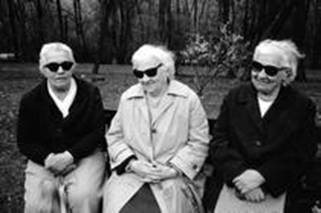|
|
A Taxing Issue
By Frantiek Bouc, The Prague Post
Czech Republic
July 20, 2005

Currently, two working persons contribute to the pension of one
retiree. In 50 years, that figure will be as low as one to one.
Politicians struggle with aging pension system as the population grays
Bezděk said a declining birthrate and an increasing number of impending retirees will result in fewer people contributing to the state-run pay-as-you-go system exactly when more people apply for it. In 50 years this demographic shift will leave just one working person to cover each pensioner; currently, two workers contribute to the pension of each retiree.
Increased subsidies to pensioners also place a terminal burden on state coffers. Next year's budget proposal earmarks more than 261 billion Kč ($10.5 billion} for pensions - almost 30 percent of all spending.
The quickly deteriorating system has fast grown into a thorn in the side of the government as the general elections approach next summer. Though politicians and economists widely agree on the need for reform, the marketing and timing of that reform has become a political issue.
Markéta Sichtařová, analyst for Next Finance, said that whatever the shape of reform, its measures will be both costly and unpopular. "It's obvious that the government will not rush it, though it's in the country's best interest to carry out the reform as soon as possible," Sichtařová said.
He does not stand alone. Prime Minister Jiří Paroubek cited pension reform as a key point on his agenda after he replaced scandal-ridden Stanislav Gross in April.
During a July meeting with mainstream political leaders, Paroubek said parties should reach a reform consensus by the end of October. Paroubek also acknowledged, however, that politicians would likely not draw the reform's final contours before the general elections next summer.
Political leaders first must agree on what percentage of the gross domestic product (GDP) should go to the pension system. The subsidy currently represents about 8 percent of GDP.
Politicians must set the ratio between state contributions and worker payments and should also reset the retirement age, Bezděk said. Currently, only about 3 million Czech people - less than one third of the population - make regular contributions to pension funds. Meanwhile, the retirement age continues to increase. In 2006 men will be able to retire at 62 years old and women at between 57 and 61 years old, depending on the number of children they raised.
After 2012 that age will rise to 63 years for men and 59 to 63 years for women, Bezděk said. He added that it remained essential to create a functioning labor market to secure employment for elderly people.
The mainstream political parties profoundly differ in their opinions on reform, he said. On one side of the barricade, the ruling Social Democrats propose to introduce personal accounts, which would enable people to contribute to personal investment funds during their productive years and so control their retirement payouts.
On the other side, the senior opposition Civic Democratic Party wants to introduce flat-rate pensions as well as lower the mandatory contribution amount for workers. That way, all people would receive the same lower pensions.
President Václav Klaus, meanwhile, said the existing system should be transformed from an insurance plan to a savings one. A form of compulsory savings for old age would be indispensable, he said, providing three conditions are met.
First, the system must undergo conversion to a saving scheme. "One cannot get insured against old age," Klaus said. "One has to make savings for old age."
Second, the pension system should be de-collectivized, which would involve the rise of private saving schemes.
Lastly, social aspects should be defined within the entire system, Klaus said, meaning that the wealthier class might be called on to support the system more than the less wealthy.
|
|



